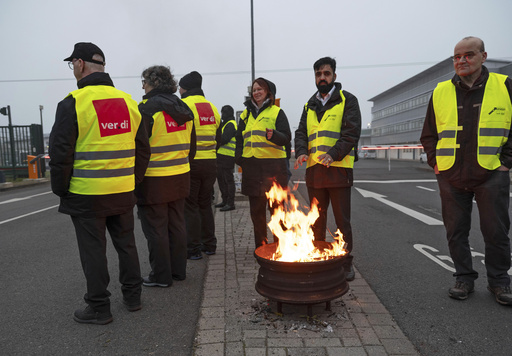BERLIN (AP) — Local buses, subway trains and trams ground to a halt in much of Germany on Friday, at the peak of a week of walkouts by employees demanding better working conditions.
The Ver.di service workers’ union called for a week of strikes lasting from Monday to Saturday, with the main day of walkouts on Friday. The union is being backed by the Fridays for Future climate activist group, which called on supporters to take to the streets for “good work and climate-friendly mobility.”
This week’s walkouts follow a previous round of strikes on Feb. 2.
The dispute centers on demands for better working conditions, such as a shorter working week and extra compensation days for night work. The exact demands and the timing of the walkouts vary from place to place.
Bavaria, where there are no negotiations at present, has been the only region not affected. An agreement between the union and employers in the small western state of Saarland was reached earlier this week, ending the strikes there.
Limited “warning strikes” such as these are a common tactic in German contract negotiations.
Travelers may soon face more disruptions as a result of a separate, long-running dispute between a union representing many of Germany’s train drivers and the country’s main railway operator, Deutsche Bahn.
The two sides returned to talks a month ago after a several-day strike by the GDL union, whose demand for working hours to be reduced from 38 to 35 per week without a pay cut has been a key sticking point.
Deutsche Bahn said GDL ended the talks on Thursday. GDL said it won’t comment until a news conference scheduled for Monday.
This website uses cookies so that we can provide you with the best user experience possible. Cookie information is stored in your browser and performs functions such as recognising you when you return to our website and helping our team to understand which sections of the website you find most interesting and useful.
